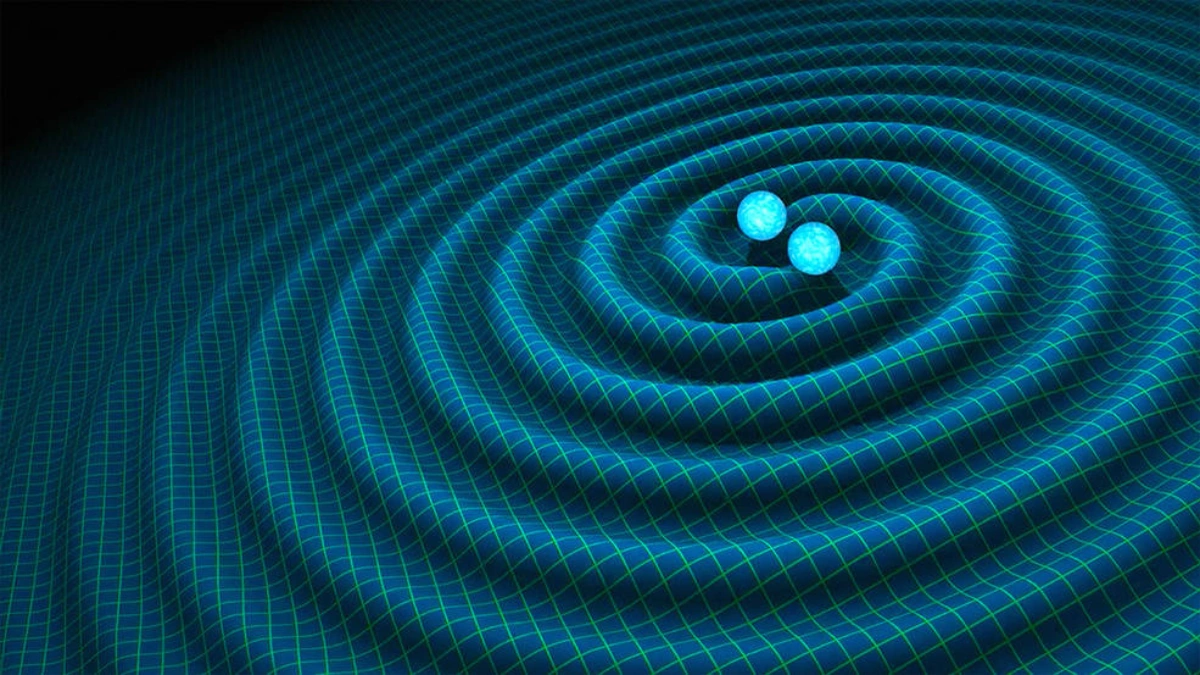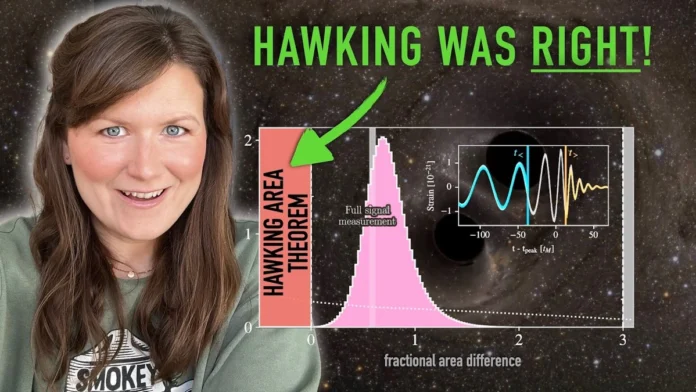Okay, let’s dive into something truly mind-bending: Hawking’s black hole area theorem . It’s not just some abstract physics concept; it’s a cornerstone of our understanding of the universe, and recently, researchers at Northwestern University have provided further validation of it. This isn’t just a pat on the back for Hawking (though he certainly deserves it); it’s about confirming some of the most fundamental ideas about black holes and the laws that govern them. But why does it matter, and what does it mean for us?
The “Why” | Unpacking the Significance of Hawking’s Theorem

Here’s the thing: Hawking’s area theorem, proposed back in the early 1970s, states that the total area of the event horizon of a black hole can never decrease. Think of it like this: a black hole can merge with another, or swallow more matter, but its surface area the point of no return will always increase or stay the same. What fascinates me is how this seemingly simple idea has profound implications for black hole thermodynamics and the very nature of entropy.
The implications are staggering. This theorem is deeply intertwined with the concept of entropy, the measure of disorder in a system. Black holes, despite their reputation as cosmic vacuum cleaners, aren’t just giant singularities gobbling everything up. Instead, they adhere to certain rules and limitations, just like everything else in the universe. And this validation from Northwestern only strengthens the evidence that our current understanding is on the right track.
How Northwestern’s Research Adds to the Picture
So, how did the Northwestern team contribute? They used observations from gravitational waves – ripples in spacetime caused by massive cosmic events – to study black hole mergers . Specifically, they looked at the aftermath of these mergers, analyzing the final black hole’s properties to see if they lined up with Hawking’s predictions. The one thing you absolutely must double-check when dealing with such complex data is the accuracy of your measurements. Thankfully, their analysis provided even more robust evidence supporting the theorem. You can read more about it here . This kind of painstaking research is vital because it subjects theoretical physics to the rigorous test of observation, bridging the gap between abstract math and the real universe. It’s how we confirm our theories aren’t just castles in the sky.
Connecting the Dots | Black Holes, Entropy, and the Universe
Let me rephrase that for clarity: The black hole area theorem isn’t some isolated finding; it’s part of a larger web of understanding connecting black holes to broader principles in physics. The relationship between black hole area and entropy suggests that black holes aren’t just destroyers; they’re also storehouses of information, albeit in a way we still don’t fully grasp. A common mistake I see people make is to assume black holes are purely destructive forces.
But, consider this: if the area of a black hole is related to its entropy, then black holes possess a staggering amount of information within them. What fascinates me is, how can something so simple (a singularity) contain so much complexity? This has huge implications for our understanding of information theory and the fundamental limits of what’s possible in the universe.
Why This Matters to You and Me (Yes, Really!)
Okay, I know what you’re thinking: Gravitational wave astronomy and black hole theorems sound pretty far removed from our daily lives. But the underlying principles at play here have far-reaching implications. This is where it gets interesting. The study of black holes pushes the boundaries of our knowledge, forcing us to confront the limitations of our current theories and to develop new ones. And these breakthroughs, in turn, can lead to technological advancements that benefit society. Don’t underestimate the power of curiosity-driven research!
For example, the development of quantum mechanics – initially driven by abstract theoretical questions – has led to the creation of technologies like lasers, semiconductors, and medical imaging devices. Similarly, a deeper understanding of gravity and spacetime could revolutionize fields like communication, energy production, and space travel. Besides, who isn’t fascinated by the mysteries of the universe? Knowing that we’re actively unraveling these mysteries, thanks to the work of dedicated scientists like those at Northwestern, should fill us all with a sense of wonder and excitement.
And, the validation of Hawking’s theorem is not just some isolated achievement; it’s a testament to the power of scientific inquiry and the collaborative spirit of the scientific community. Speaking of collaborations, research institutions around the world are working together to unlock the secrets of black holes and other cosmic phenomena. It’s a powerful reminder that when we work together, we can achieve truly remarkable things. Let’s be honest, that’s a message worth celebrating.
FAQ Section | Black Holes and Beyond
Frequently Asked Questions
What exactly is Hawking’s black hole area theorem?
It states that the total surface area of a black hole’s event horizon (the point beyond which nothing can escape) can never decrease over time.
Why is this theorem so important?
It connects black holes to the concept of entropy and provides insights into the fundamental laws of thermodynamics and information theory.
How did Northwestern University validate this theorem?
They analyzed gravitational wave data from black hole mergers to confirm that the final black hole’s area aligns with Hawking’s prediction.
What are gravitational waves?
They are ripples in spacetime caused by accelerating massive objects, such as black holes merging. NASA is an excellent resource to understand these waves.
Could understanding black holes lead to practical applications?
Absolutely! Advances in theoretical physics often pave the way for technological breakthroughs in various fields.
Where can I find more information about this research?
Check out Northwestern University’s news website or reputable science journals for detailed reports.
So, the next time you gaze up at the night sky, remember that there are incredibly complex and fascinating processes occurring out there, governed by laws we’re only beginning to understand. And thanks to the dedication of researchers like those at Northwestern, we’re one step closer to unraveling the mysteries of black holes and the universe itself. This study on black hole entropy could unlock the secrets of the universe. Discover more about cutting edge technology!

